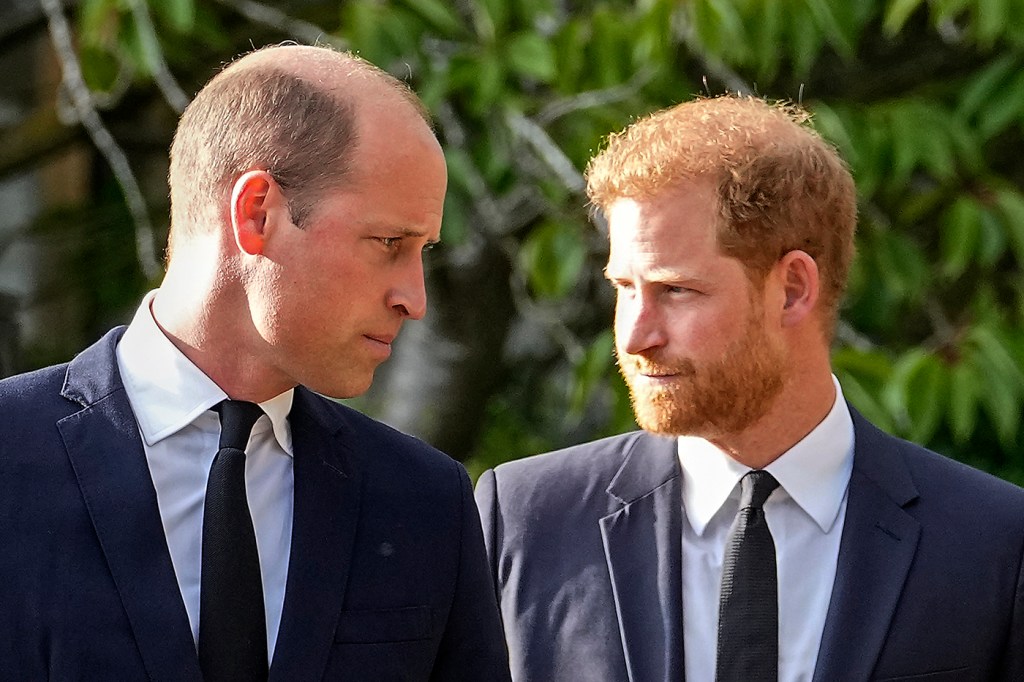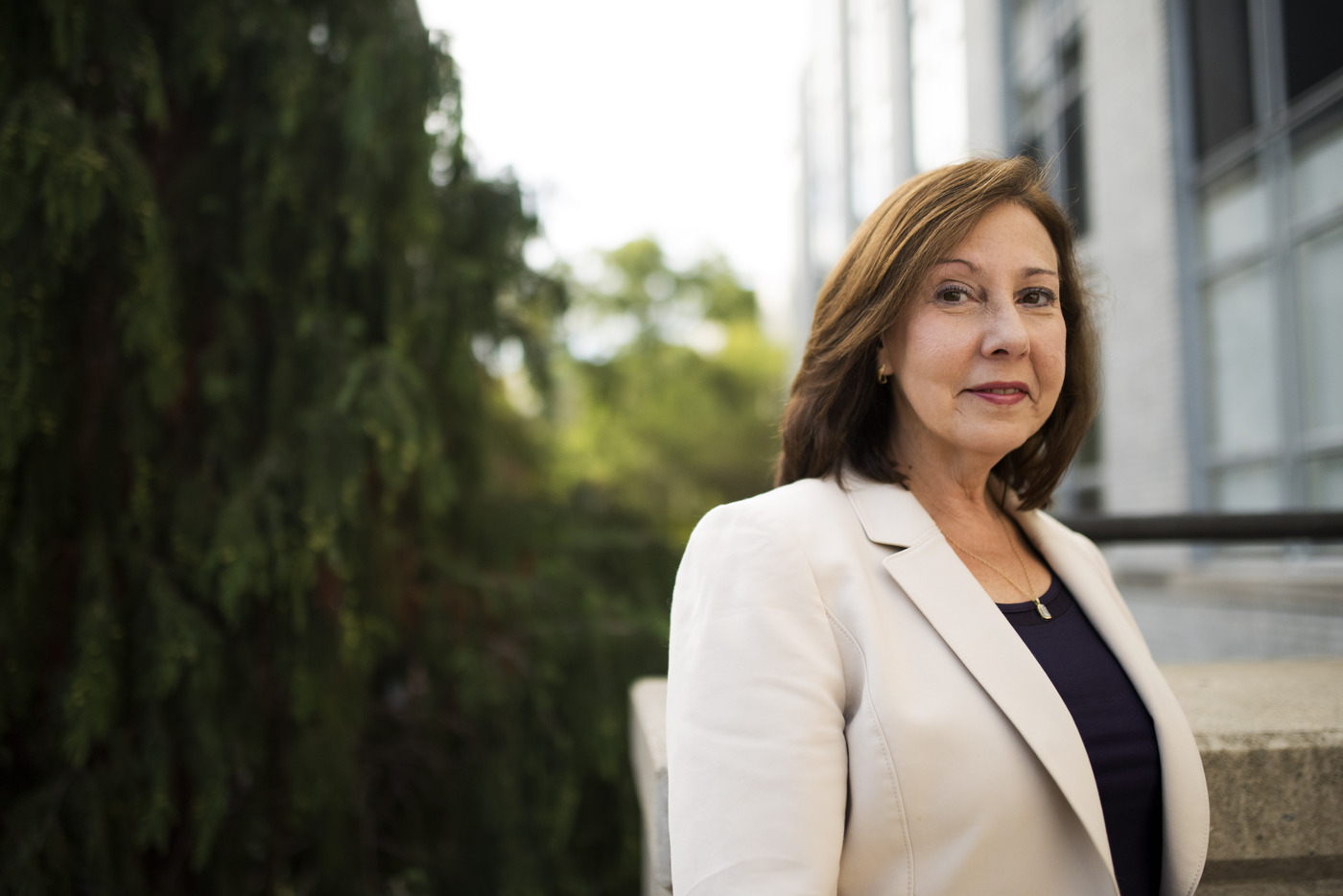Royals Harry and William put sibling rifts in the spotlight

With the second installment of the docuseries “Harry & Meghan” dropping Dec. 15, it’s a high probability that the Duke of Sussex will not be spending Christmas with his brother, Prince William, at the British royal family’s country house in Sandringham.
A trailer for the next three episodes to air on Netflix threatens to deepen the rift between the brothers who have been separated by a continent since Harry and his wife, Meghan Markle, Duchess of Sussex, stepped back from their senior royal duties in 2020.
The Sussexes, who now live in California, have said hostile media and racist attitudes toward Markle, who is mixed race, fueled their departure. But family dynamics do not escape the crossfire.
“They were happy to lie to protect my brother,” Harry says in the trailer. “They were never willing to tell the truth to protect us.”
High family drama around the holidays is nothing unusual. And sibling estrangement is more common than most people realize, says Laurie Kramer, professor in Northeastern’s department of applied psychology.
Based on her research on sibling relationships, Kramer is hopeful that William and Harry will eventually reconcile, which is good news for non-royals separated from the brothers and sisters they grew up with by past hurts and current controversies.
Little research on sibling rifts
“Growing up, siblings have an understanding of their families really no one else in the world can truly understand,” Kramer says.

That is true for William and Harry as well, who experienced the death of their mother Princess Diana when they were 15 and 12, respectively.
“It really feels like such a shame when you see that adult siblings are no longer willing to engage with each other or there’s hostility or conflict they haven’t been able to manage,” Kramer says.
When it comes to studies of family dynamics, “there’s very little research” on sibling estrangement, she says.
“People are embarrassed and ashamed to admit when this is happening in their family. They don’t often confess that they haven’t talked to their siblings in a couple of years.”
What causes estrangement
There are many reasons why sibling rifts occur, Kramer says.
“Typically, it happens because there’s been some kind of a toxic behavior that one or both have exhibited,” she says.
The fracture could result from substance abuse, mental health issues, personality disorders or the introduction of a partner who doesn’t get along with the sibling, Kramer says.
“Sometimes it’s really just feeling rejected by a sibling, feeling like that person just doesn’t really like them or want to spend time with them.”
“Sometimes the roots are in childhood, when one sibling felt that a parent or both parents or grandparents always favored one of the siblings over the other,” Kramer says.
The favored child
Having a sibling be first in line for the throne of England, according to the rules of succession, can make a brother or sister feel as if they are literally in second place.
Harry, who has a memoir scheduled to be released Jan. 10 by Penguin Random House, tellingly has titled the book, “Spare.”
That “says it all,” Kramer says. “The whole system has been set up to nurture William and help him ascend to the throne. So that hierarchy is really there.”
Even in non-royal families, one sibling may be set up as the “golden child” favored by parents or grandparents.
The favored child may not even realize that was the case and in any event probably did not have the skills to address the resentment or sadness it fostered in their siblings, Kramer says.
Siblings can come to terms with favoritism as adults, however, with open and honest communication, she says.
They need to listen to each other and realize they may have experienced life in the family differently, Kramer says.“If they can come to a place where they could say, ‘I’m sorry that happened. You got treated poorly by grandma or by dad. That was very unfair.’”
“Then I think siblings can form more of an allegiance to each other and move forward from there.”
Send out feelers at holidays
The holidays may not be the best time to have the big conversation, but they are a good time to send out feelers, Kramer says.
“These are conversations you want to approach with a great deal of openness and sensitivity,” she says.
“Doing it in the midst of holiday chaos and excitement and heightened emotions may not be optimal,” Kramer says.
Instead, suggest getting together for coffee after the holidays, she says.
If you will not see your sibling in person, try reaching out on the phone or like something on their Facebook page, Kramer says.
“Dip your toes in the water and see if there’s some receptivity,” she says. “Maybe ultimately it will lead to a dinner or bringing families together.”
It’s important to “have courage and put yourself out there and be a little vulnerable with others when you may indeed get rejected and hurt.”
“Approach from your adult stance and competencies rather than reverting back to how you felt about this as a child,” Kramer says.
When it’s too toxic to relate
It’s also important to acknowledge that now might not be the right time to mend a rift.
“Clearly, people need to protect themselves and their families from getting into situations that are just going to take too much out of them,” Kramer says.
In some cases, siblings won’t be able to help a brother or sister deal with an issue such as substance abuse or mental illness.
“They may need to wait until that sibling is in a better place and more receptive to the kinds of help and support they are able to provide,” Kramer says.
Hopes for William and Harry
“I’ve never met Harry or William. I really can’t comment fully on their relationship,” Kramer says.
“But I would imagine that because they did have such a strong bond early in their lives, that they’ll find their way.”
“Sometimes the sibling relationship gets derailed,” Kramer says.
“But I do believe in my heart that having a strong relationship early on (means) there will be elements that they’ll be able to draw on. When Queen Elizabeth passed away, at the funeral there were some moments you could see some glimmers of hope that they’d be able to reconnect.”
If the Windsor brothers are able to reconcile amid the media spotlight, that bodes well for non-royals.
“You’re now a grown up,” Kramer says. “And that offers opportunities for building a new type of relationship with your sibling. Even though this ‘new’ relationship may not be the same as when you may have been closest as children, it may offer some very nice qualities that can serve you both well through adult life.”
For media inquiries, please contact media@northeastern.edu.






